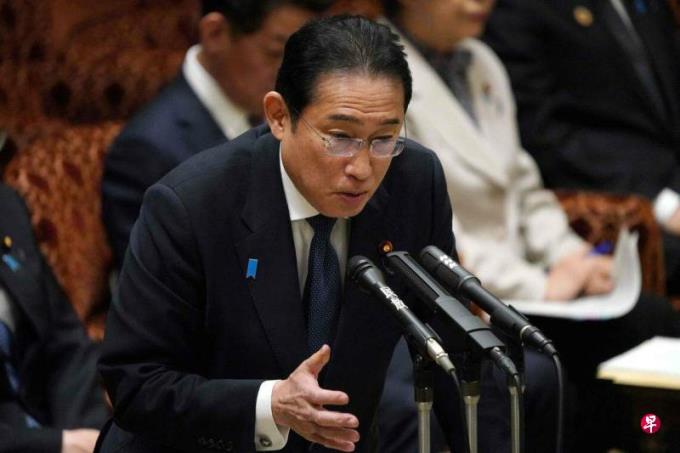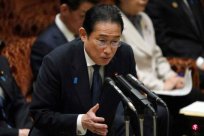
The results of the Japanese public opinion survey in March show that the support rate of the Kishida regime continued to fall to 25%.Whether the current Prime Minister Kishida can win the election of the President of the Liberal Democratic Party in September this year, and re -elected the Prime Minister depends on how he cope with the dual challenges of the current domestic politics and economy.
Politics, the incident of political contributions exposed at the end of last year undoubtedly hit the Liberal Democratic Party's trust.Although there is no major problem in the factional valve affiliated by Kishida, as the President of the Liberal Democratic Party, how to deal with the political scandal within the party and win the trust of voters are an imminent problem.In particular, the most well -known politicians in the Liberal Democratic Party and the well -known politicians of the second -order faction have participated in it, making the handling of the problem very difficult.
Kishida once wanted to imitate the former Prime Minister Koizumi Koizumi, abandoning the Politics in the Liberal Democratic Party, and in exchange for national support by dissolving the policies of the party's factional valve.However, this idea was opposed by the power politician Makotaro and Monami Mimin in the party.How to properly handle the perpetrators who include the Political Dedication of Politics, including the second -order Junbo, and do not offend the relevant valve in the party.
Fortunately, the Japanese party in the wild still has its own politics, it is difficult to unite, and it is impossible to come up with a more attractive policy program.Therefore, the Liberal Democratic Party's position as the ruling party will not shake at all.Even if Kishida disbanded the election of the House of Representatives this year, the Liberal Democratic Party is still likely to obtain most of the seats required by governance.The problem is that Kishida's prime minister's status has begun to be at stake.Three years ago, the reason why he was able to ask the Prime Minister's throne was that there were Abe and Masheng fabrics behind him.The political donation scandal is likely to make his party support.In the final analysis, Kishida must also rely on factional politics to consolidate its leadership status by carefully dealing with the relationship with the main valve.
In terms of economy, although the Japanese stock market has continued to rise and refresh its historical high, ordinary people do not feel that the economic situation has improved.The Nikkei index has recently exceeded 40,000 points, surpassing the foam economy era in the late 1980s.Not only did this not increase the confidence of Japanese citizens of the economy, it has caused many concerns.The latest public opinion survey of the Cabinet House shows that about 62.3%of the Japanese have expressed their concerns about economic trends and their own economic conditions.
It is worth pointing out that the data in February this year showed that the total domestic product (GDP) of Japan's 2023 was surpassed by Germany and the total economic economic volume retreated in the world fourth.It is undeniable that some of the reasons are the depreciation of the yen, which greatly shrinks the Japanese GDP converted in the US dollar.But as long as the economic data of Germany and Japan, it can be found that it is sooner or later that Japan's GDP is overtaken by Germany.
First of all, in the past 20 years, the average annual economic growth rate of Japan and Germany has been 0.7%and 1.2%, respectively, and Japan is obviously less than Germany.Secondly, Japan's labor productivity in 2022 was only 60%of Germany, and ranked 30th among 38 countries in the Economic Cooperation and Development Organization (OECD).It is no wonder that Japan's GDP will be surpassed by Germany, which is only two -thirds of the population.
For the Japanese economy, the problem that is urgent now is how to stimulate personal consumption and enterprise investment.In the fourth quarter of 2023, Japanese personal consumption and enterprise investment decreased by 0.4 percentage points and 0.1 percentage points year -on -year. Personal consumption and enterprise investment were not strong because people were not optimistic about the economic situation and dare not spend money.
Kishida's economic policy in the early days of governing was accused of inheriting "Abe Economics"."Abe Economics" has promoted the rise of the stock market through the loose monetary policy and the depreciation of the yen. At the same time, it has also expanded the export trade of large companies such as Toyota Motors, which has benefited investors and large enterprises.But this has not changed the economic situation of small and medium -sized enterprises and ordinary people.
At the same time, the Japanese economy has shifted from deflation to inflation in the past few years.The price is high, and the substantial salary of ordinary people has basically maintained the same level in the past 30 years.With repeated urging of the government, recent large Japanese companies have stated that they will significantly increase employee wages, hoping to drive consumption and achieve a virtuous circle of economy.
Whether the above -mentioned political and economic dilemma can be resolved, whether Kishida can become another long -term Japanese Prime Minister after Abe.There are still half a year left for him, we wait and see.
The author is a professor at Qianqiao International University in Gong Ai Academy in Japan




